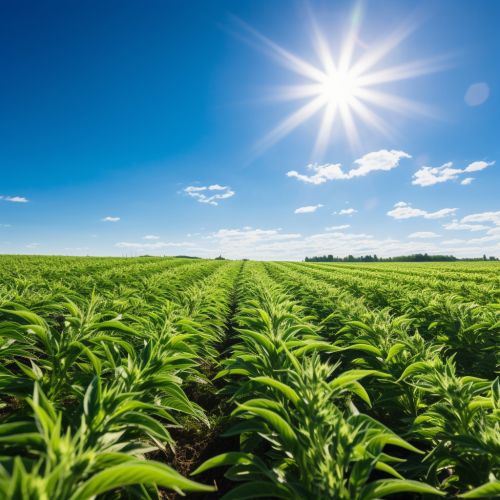Transgenic Crops and Food Security
Introduction
Transgenic crops, also known as GMOs, are plants that have been genetically altered to possess certain desirable traits. These traits can include resistance to pests and disease, tolerance to harsh environmental conditions, and improved nutritional content. The development and use of transgenic crops have been a topic of debate, particularly in relation to food security.


Genetic Modification of Crops
The process of creating transgenic crops involves the insertion of genes from one organism into the DNA of another. This is achieved through a variety of genetic engineering techniques, such as Agrobacterium-mediated transformation and biolistics, also known as the "gene gun" method.
Benefits of Transgenic Crops
Transgenic crops offer several potential benefits. Firstly, they can increase agricultural productivity by making crops more resistant to pests and diseases, thereby reducing the need for chemical pesticides. They can also be engineered to tolerate harsh environmental conditions, such as drought or high salinity, which can increase crop yields in areas where farming is otherwise challenging.
Secondly, transgenic crops can be modified to improve their nutritional content. This can be particularly beneficial in regions where malnutrition is prevalent, as it can help to address nutrient deficiencies and improve overall health.
Concerns and Controversies
Despite the potential benefits, the use of transgenic crops has also raised several concerns. These include potential risks to human health and the environment, ethical issues related to genetic modification, and socio-economic concerns related to the control and ownership of genetic resources.
Transgenic Crops and Food Security
Food security is a complex issue that involves not only the availability of food, but also access to food and the quality of food. Transgenic crops have the potential to contribute to food security by increasing agricultural productivity and improving the nutritional content of crops. However, they are not a panacea, and their use needs to be considered within the broader context of sustainable agricultural practices.
Conclusion
Transgenic crops offer potential benefits in terms of increased agricultural productivity and improved nutritional content. However, their use also raises several concerns that need to be carefully considered. As such, the role of transgenic crops in enhancing food security is likely to remain a topic of ongoing debate.
